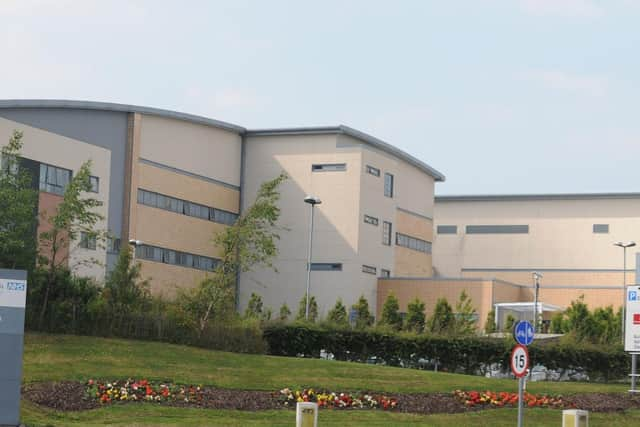A&E performance hits five-year low at East Lancashire Hospitals Trust
and live on Freeview channel 276
The required target for A&E departments is to admit, transfer or discharge at least 95% of patients within four hours of arrival.
But NHS statistics show that patients at East Lancashire Hospitals Trust waited longer on 3,831 occasions in December – 23.8% of all attendances.
Advertisement
Hide AdAdvertisement
Hide AdThis was the worst performance for that month since 2015, the earliest period for which data is available.


The vast majority of NHS A&E departments across England fell short of the 95% target in December.
Nationally, just 79.8% of patients were seen within four hours – the worst performance for any month since records began in 2010.
A&E departments dealt with 2.2 million visits in December – a 6.5% rise on the same month the previous year.
Advertisement
Hide AdAdvertisement
Hide AdAnd during 2019, the national service saw 1.2 million more A&E attendances than in 2018.
Natalie Hudson, director of operations at East Lancashire Hospitals NHS Trust, said: “Every month, our emergency department staff work incredibly hard to treat large numbers of patients efficiently, safely and as quickly as possible. December was no exception.
“Admitting emergency patients is often complex and requires decisions to be made by a number of professionals across the health and social care system. We understand this can cause frustration and upset. We are working to improve this process and, when they occur, reduce delays.
“For example, our Winter Plan, developed in partnership with our health and social care partners in East Lancashire, is proving to be successful. Last month, we opened a new 35- bed Emergency Surgical Unit at the Royal Blackburn, to speed up admission for surgical patients and we’ve had success in reducing both the number of delayed discharges as well as the average length of stay for hospital patients.
Advertisement
Hide AdAdvertisement
Hide Ad"And just this week, we’ve staged one of our regular ‘Perfect Week’ exercises when ELHT and our partners work together to remove delays to inpatient pathways and support the safe, effective and timely discharge of patients.
“The public can help to support the work of the hospital by using the more appropriate NHS service. If you are feeling unwell, local Pharmacists can help you with most minor illnesses
and ailments.
“The free NHS 111 telephone service or www.nhs.uk online are also able to direct you to the most appropriate health professional. This includes access to GPs 24 hours a day. However, should you begin to feel better and no longer need your GP appointment, please remember to cancel it to release it for others in need.”
President of the Royal College of Emergency Medicine Dr Katherine Henderson said there are not enough staff, and far too few hospital beds in which to treat, the rising number of patients.
Advertisement
Hide AdAdvertisement
Hide Ad“These figures show that our emergency departments are at their limits. The current situation is very difficult for both patients and staff,” she added.
“We fear though that things will get worse before they get better. Change is coming but we need election promises by the Government to be kept.”
Dr Simon Walsh, the British Medical Association’s emergency medicine lead, asked: “How many wake-up calls does the Government need?
"These figures are truly alarming and serve as yet further evidence that our NHS simply doesn’t have the resources, staff, or capacity to cope with rocketing demand.”
Advertisement
Hide AdAdvertisement
Hide AdHe said the Government must scrap the “ridiculous” pension taxation system, which has seen many doctors scale back their hours to avoid paying increased tax bills after new rules were introduced.
Dr Walsh added: “We need a long-term fix to this crisis so that doctors can get back to doing what they do best – caring for their patients.”